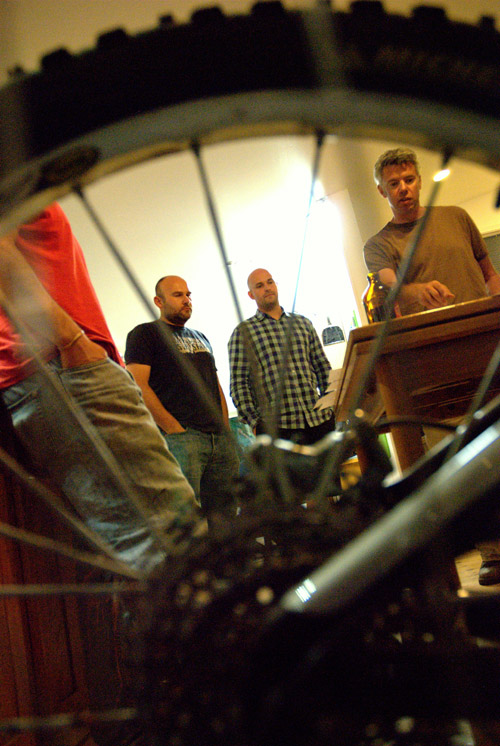
Oregon Manifest, September 23-24, 2011 | The Constructor’s Design Challenge
What is it?
A competition to design and build the ultimate modern utility bike…
“A diverse range of individual frame builders and collaborative teams from across the nation will test their mettle against Oregon Manifest’s rigorous design criteria, in pursuit of the ultimate modern utility bike.”
When is it?
Friday, September 23: See the bikes. Meet the builders. View the field test route.
7pm to 10pm | Pacific Northwest College of Art | 1241 Northwest Johnson Street Portland
Saturday, September 24: Constructor’s Design Challenge Field Test | Start 50 miles outside Portland City limits | Finish Chris King Precision Components 2801 NW Nela Street Portland
For more information and a complete schedule, go to the Oregon Manifest website.
Meet the constructors: 34 entrants from 11 states | 6 student teams.
[On an early-August evening, University of Oregon’s Product Design program’s Oregon Manifest design team invited the observation and documentation of their work. As the group of designers, students and bike builders forged ahead in the crafting of the “ultimate utility bike,” their work was filmed and photographed. What follows is a brief progress report of their creativity and vision….]
__________________________________________________________________________________
[9 August 2011.] Dividing their time between a secluded bike-building workshop deep in the greenery of a lush Portland forest and a bay of daylight-infused studios on the fifth floor of the White Stag Block, a group of seven University of Oregon Product Design students have been busy this summer imagining, designing, creating, and fabricating the ultimate utility bicycle. Part of the Oregon Manifest Challenge 2011 and UO’s Summer in the City special course offerings, the project is the second part of two terms that focused on the framing, design, refinement, and building of the University of Oregon’s final entry.

Led by designers, Christian Freissler, Senior Industrial Designer at Ziba Design, and James Molyneux of Nike Innovation Kitchen, and a working collaboration with Portland-based bike builder, Dave Levy of Ti Cycles (owner of the forest-based workshop), the bike will be crafted to be “something new, and functional.”
Freissler comments that in Portland:
“Bikes are more than a lifestyle…they are a way of life! Being used for everything from delivering soup to hungry local neighborhood offices, commuting through town to bombing down the mountain. Cyclists have a way of finding a DIY fix to every problem! But then that just highlights the opportunity to create something different.”
And, indeed, something different is what they plan on presenting at the September 23, 2011 unveiling event.
University of Oregon was among a select group of schools invited to participate in the Oregon Manifest student design competition. Together with the concepts of professional bike builders and renowned design consultancies, the UO Product Design bike will be judged and exhibited at the final challenge in September. Freissler and Molyneux together with technical expertise of master bike-builder, Levy, cooperated to challenge UO students to go back and look at the true meaning behind the bicycle and theorize how that can be re-interpreted for a modern and connected city like Portland.
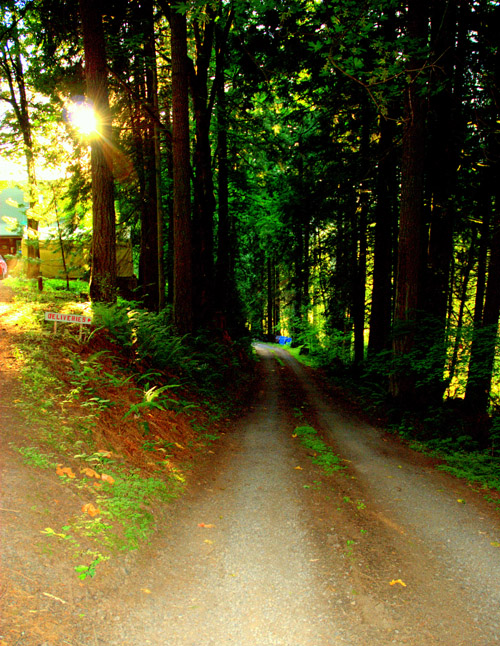
Last week, I was invited to tag along with the group to get a sneak peek of the students at work in the Ti Cycles workshop. The experience of getting to see the group at work, discussing confidential drawings, analyzing ideas and mulling over the highly complex notions of their original concepts was nothing short of inspiring. This was the final phase —the building of the entry bike, and consequently, very exciting for both students and instructors.
The night I attended the workshop, students and professors were getting the first glimpse of the final design becoming real, parts fitting together, materials being joined, machinery being used to craft the ultimate design, talk and plans and ideas were running high and the level of enthusiasm was captivating. Freissler and Molyneux carefully and thoughtfully guided the students to lead the discussion and to make the formative decisions themselves, stepping in only to mindfully guide a decision or encouraging students to recognize time constraints and the goals of the competition.
Freissler notes:
“It is not always easy to carry forward a design made by seven people! You need to choose your battles and sometimes this means letting go of your own idea for something the group believes in. But it also means that you sometimes have to stand up and fight for a detail if you really believe it is relevant for the project. The students are definitely doing that and they are learning to make timely decisions and to coordinate with available shop time and deadlines. The instructors and students are also quick to point out the positive working relationship they have with Dave Levy saying that his guidance and insight has kept them “grounded and [gets them] connected with the craft. Levy’s love of bikes and details reflects on [us] and we’ve learned a lot from him over the past few months.”
And, while I can’t divulge the details of their design nor the particulars of the materials, you can see this first glimpse of the work behind the University of Oregon’s entry for Oregon Manifest 2011. The project has a life of its own—a complete and seamless merging of the craft of custom bike building and industrial product design that, as Freissler asserts, “makes the magic of this project.” When asked to comment on the emerging design called in some promotional materials “The Work Duck”, Freissler and Molyneux agreed, “We are looking for more than quirky and a bit of hipster style. We’re going to step up and do something that’s more than an aesthetic makeover, and more relevant than a Segway….” We wish them well….and will keep you posted.
post | photos sabina samiee uo portland
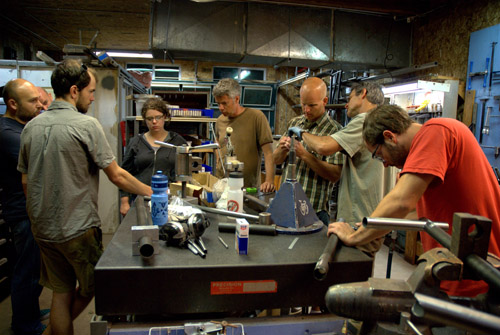
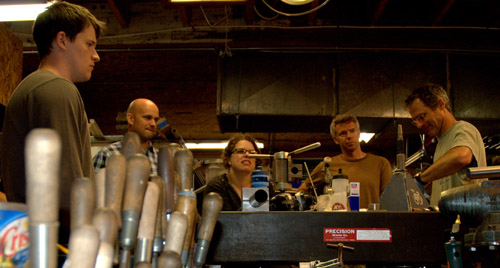
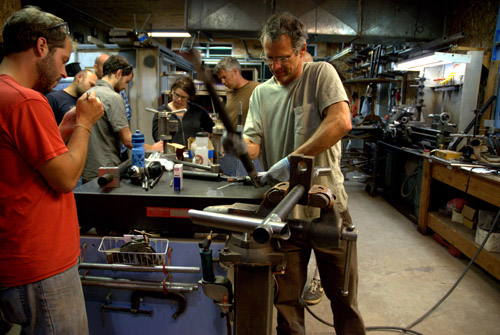
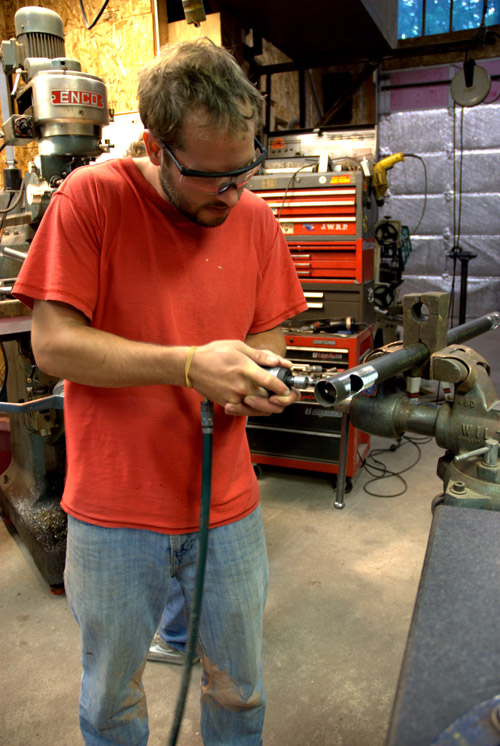

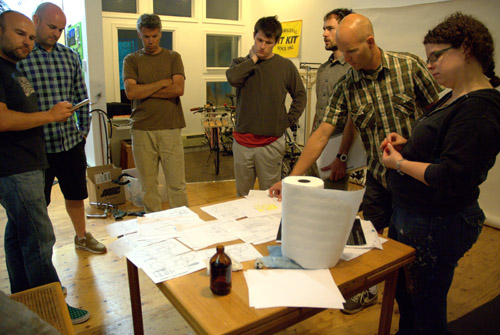
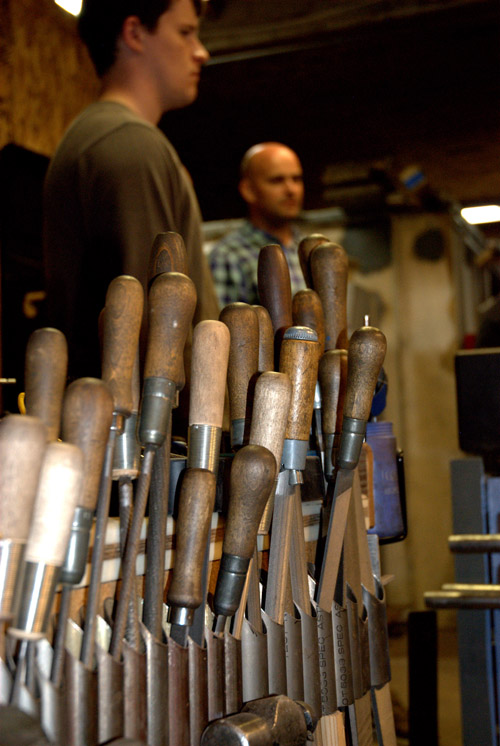
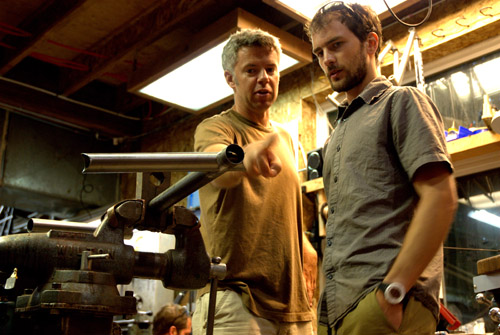
One comment on “"More Relevant Than A Segway:" UO's Oregon Manifest Entry Takes Shape”